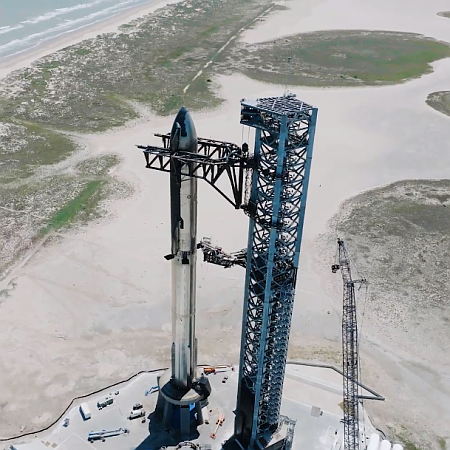SpaceX donates used Merlin engine and Falcon 9 grid fin to Smithsonian
A SpaceX used Merlin engine and a Falcon 9 grid fin will go on display at the Smithsonian Air & Space museum when it reopens its east wing after a major renovation.
In addition to the 2019 launch of SpaceIL’s “Beresheet” moon lander, which entered lunar orbit but crashed into the moon’s surface, the donated Merlin engine was one of nine that flew on the first stages of two other Falcon 9 rockets. In 2018, it was launched twice from Vandenberg Air Force Base (today Space Force Base) in California, helping to loft commercial communications satellites (Iridium-6) and an Argentinian Earth-observation satellite (SAOCOM 1A). The latter stage was the first to land on land on the U.S. West Coast, as opposed to using one of SpaceX’s ocean-going droneships.
The grid fin flew only once, on the 2017 launch that placed a South Korean communications satellite in orbit.
From an engineering perspective, one can’t help wondering why SpaceX chose to donate these items in particular. Why for example did the grid fin fly only once? And why was the Merlin engine retired?
A SpaceX used Merlin engine and a Falcon 9 grid fin will go on display at the Smithsonian Air & Space museum when it reopens its east wing after a major renovation.
In addition to the 2019 launch of SpaceIL’s “Beresheet” moon lander, which entered lunar orbit but crashed into the moon’s surface, the donated Merlin engine was one of nine that flew on the first stages of two other Falcon 9 rockets. In 2018, it was launched twice from Vandenberg Air Force Base (today Space Force Base) in California, helping to loft commercial communications satellites (Iridium-6) and an Argentinian Earth-observation satellite (SAOCOM 1A). The latter stage was the first to land on land on the U.S. West Coast, as opposed to using one of SpaceX’s ocean-going droneships.
The grid fin flew only once, on the 2017 launch that placed a South Korean communications satellite in orbit.
From an engineering perspective, one can’t help wondering why SpaceX chose to donate these items in particular. Why for example did the grid fin fly only once? And why was the Merlin engine retired?

